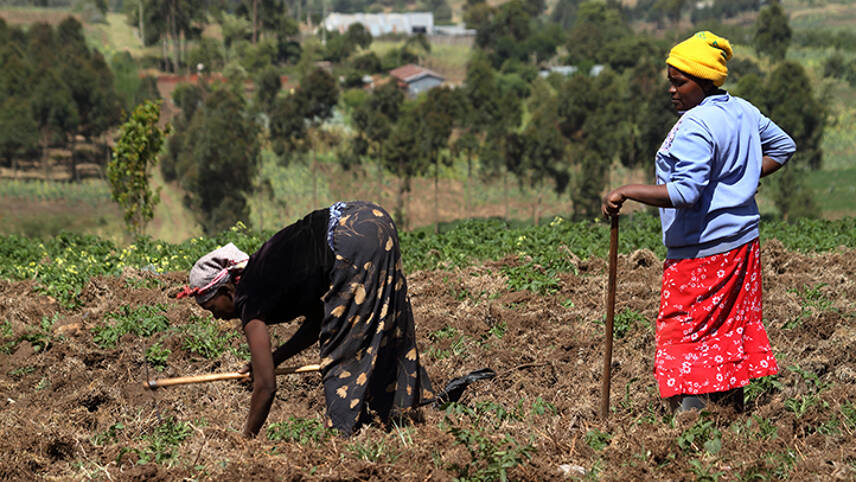Register for free and continue reading
Join our growing army of changemakers and get unlimited access to our premium content

Stock image of Kenyan farmers
What’s your background and how did you get to where you are today?
First, I’m a nutritionist, so food is close to my heart, and I’ve always worked in this space. I joined Upfield when the business was formed four years ago and now handle corporate affairs and communications for Kenya and the surrounding areas after spending many years working across regulatory affairs, stakeholder engagement and partnerships at Unilever and Nestlé. A large portion of the work that I do today is managing our external partners and sustainability programmes. Through these programmes, I can really bring together our brands and community for the betterment of both.
How do you create an inclusive work environment?
I work closely with our external partners, R&D, and the global team so it’s important to me that we all recognise we are working towards the same purpose. At Upfield, our purpose is to provide and offer delicious plant-based foods that are good for the planet and obviously good for us too. This focus on a common goal allows us to work collaboratively across many teams without being in the same office space or country. My hope is that the people I work with come as they are and put their best foot forward and together, we will accomplish great things.
How does this work environment capture the needs, thoughts and wants of on-the-ground workers in Kenya?
Our focus on creating delicious plant-based foods that are better for us and the planet has led us to identify projects that uplift the community through ingredient sourcing and local partnerships. We source the ingredients locally to make pure canola oil, peanut butter, margarine, and mayonnaise. Our local farmers generate nearly 80% of the canola oil that we use in our spreads and margarine, and we are working toward 100%.
To address the needs of the community we make nutrient-rich products at an affordable price point. For example, canola oil has essential nutrients like Omega 3 and Omega 6, both important nutrients for the development of growing children. Globally, micronutrient deficiencies (often termed hidden hunger) affect up to two billion people. We have fortified our Blue Band spread with six vitamins – A, B3 & B6, C, D & E – to ensure it becomes part of a well-rounded meal to help children grow, learn and perform at their best.
Malnutrition continues to be a big issue in Kenya with approximately 25% of children under five years with stunted growth. That’s a huge issue – it’s a quarter of all children. It is so important to me and our partners that we continue to develop recipes that provide affordable access to good nutrition for these children.
In addition to our canola oil, our peanut butter is an important option for many families. We started working with farmers who were not familiar with peanut farming and now have them growing safe, local peanuts that provide them with a livelihood. We also work with local universities and cooperatives to bring together farmers and help secure a sustainable livelihood for people in the community. Our ambition is to continue to grow this programme and these partnerships to ensure we’re sourcing 100% of our peanuts locally and be more sustainable in the long term. We’re making decisions today that will benefit the planet tomorrow, for our children and their children.
How important is it for women to lead these programs?
Women are often the gatekeepers of the household, and as such, are responsible for getting nutritious food on the table for our families. We need women moving these sustainable and effective programmes forward. When we have women at the forefront, we’re sure to experience a better future for all.



Please login or Register to leave a comment.